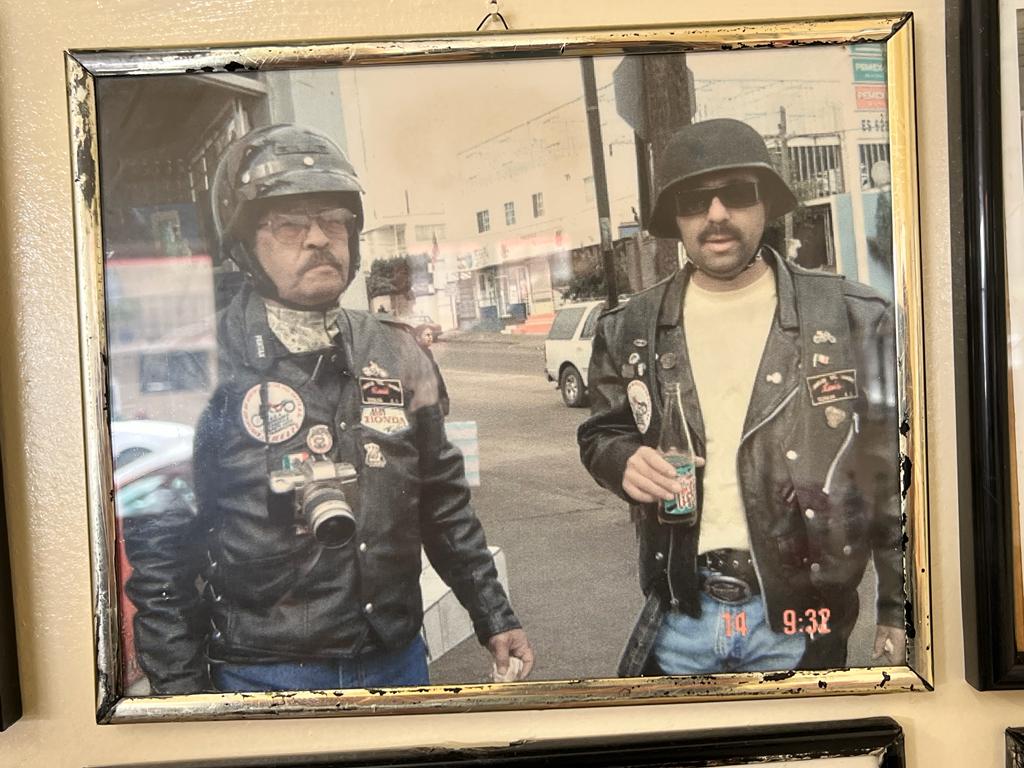Less than two miles away from the border, sandwiched between two OXXOs, you will find the best Ensenada-style taco in Tijuana. Here’s the cold hard taco truth: Even great Ensenada-style tacos in L.A. don’t hold a candle to the unrivaled and low-key Tacos de Pescado Alicia.
These tacos are so delicious that they are charged to a running tab since most people order more than they thought they wanted. The softness of cazón (mako shark) that is floating in a cloud of crispy fried batter, the perfectly soft corn tortillas, and the freshly minced cabbage, tangy crema, and perfectly lime-pickled onions that are available to add to your liking. This isn’t mentioning the ceviche de pescado, which deserves an honorable mention with its balanced ratio of onions, tomatoes, and cilantro to minced fish that is perfectly salted.
Welcome to Alicia’s Tacos de Pescado Alicia.
My grandmother grew up in Tijuana, and many of my family members continue to live there in the house she lived in as a child. At 18, she immigrated to the U.S., but her ties to Tijuana remained strong. We were back often, despite the commute. Every time without fail, we would eat tacos at Alicia’s for lunch, grab a paleta at the (now closed) paletería next door and go to my great-grandmother’s home with full stomachs before playing with fireworks and the stray dogs on the street. I was even excited to sit in the line to enter back into the U.S. going home because that meant eating the only good esquite I would have until we returned to Mexico.
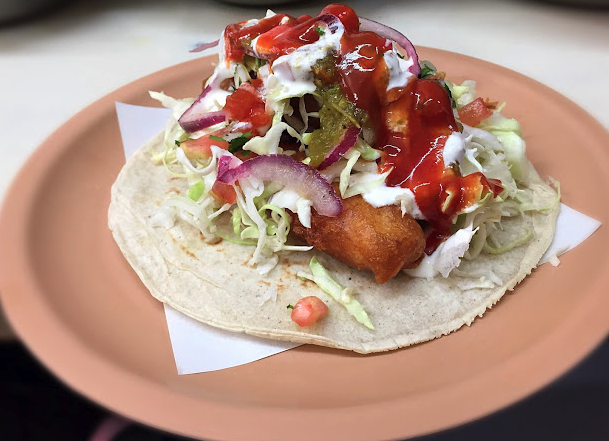
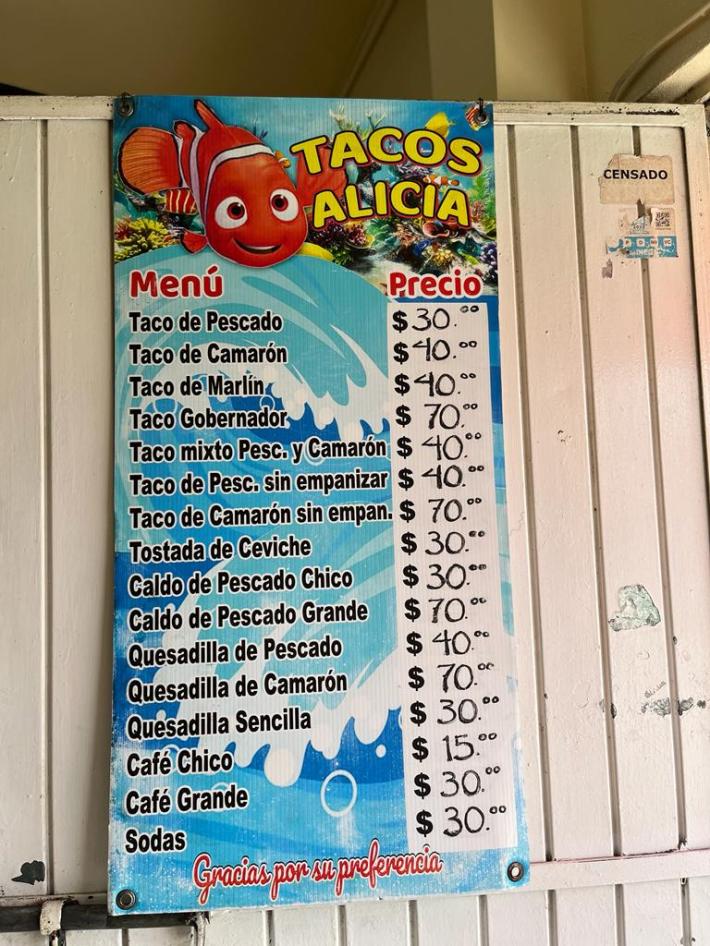
The trips started becoming less frequent. I started college and had a baby, and I could no longer freely jump into the backseat of my grandmother’s car when I saw her stepping out the door carrying bags of hand-me-downs that would be sold at the swap meet or given to my younger cousins. Cravings don’t give a damn about your responsibilities, however, and so I was stuck dreaming of Alicia’s fish tacos at least once a month.
I tried to find a suitable substitute in Los Angeles. I really did. But even after almost seven years of living there, I have yet to find an Ensenada taco that scratches the itch. The more I thought about the food at Alicia’s, the more I became curious about other memories I had there. Specifically, what was up with all of the biker photos? They had always caught my eye as a child, but it was just a fact of life. Some places put up photos of celebrities who have visited, and Alicia’s put up photos of bikers and their motorcycles.
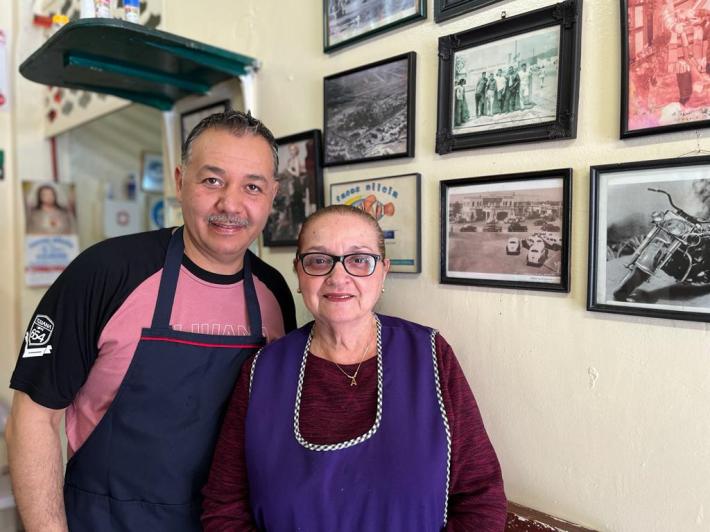
My grandmother said they were old photos of Tijuana, but I knew there must be more to it than an aesthetic choice to focus on motorcycle gangs in Tijuana. So I jumped at the chance to visit again as a journalist and give an answer to one of my life’s oldest questions. And have some tacos.
In the Uber on the way to my interview at Alicia’s, the driver asked whether I had been and commented on how good they are, but that it’s more of a local haunt. I knew, as I basically became a proselytizer of the food.
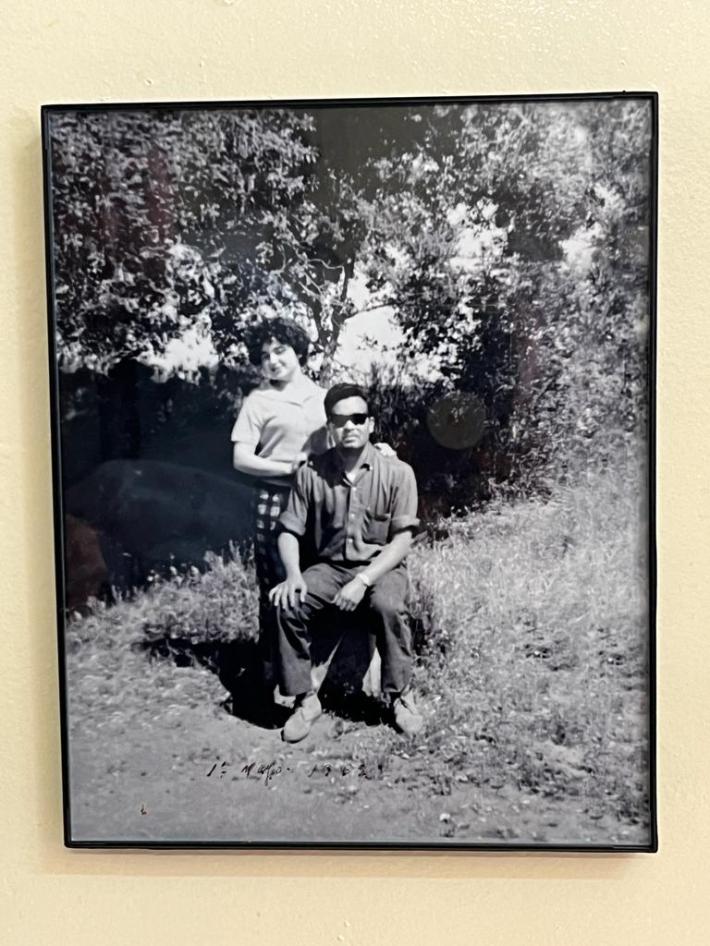
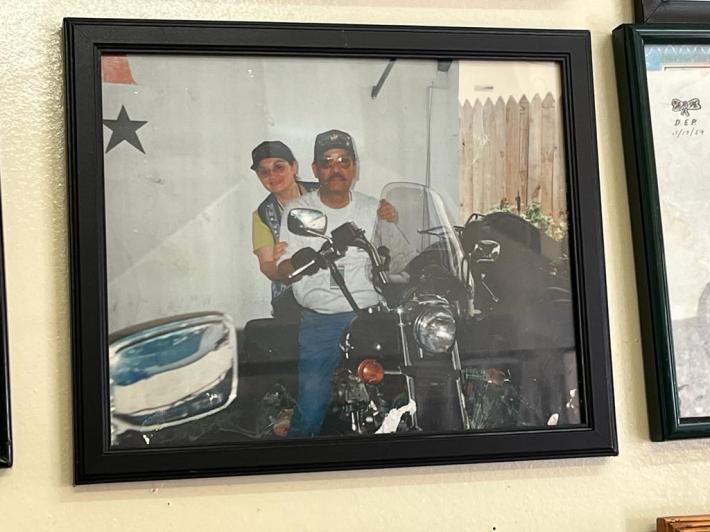
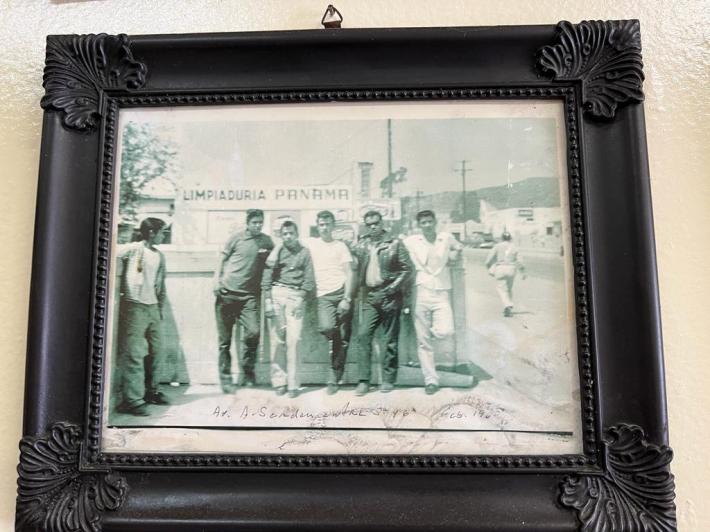
Having been in business since 1991, Alicia’s remains a cornerstone of Tijuana’s local food culture. My family has been visiting since then, but we’re only a tiny number in the loyal customer base that Alicia’s has built since opening. They’re not entirely on the map for people who haven’t walked around Colonia Libertad. As I figured out how to schedule my interview, I realized they didn’t have a phone number attached to their business. They never needed to, as most of their business is brought to them by word of mouth. In 2021 they were recognized by Tijuana Mayor Luis Arturo Gonzáles Cruz for what they’ve added to the culture and identity of Tijuana.
Despite their reputation, you won’t find them on many (if any) “Best of Tijuana” lists or the like. It isn’t something that the owner, 78-year-old Alicia Duarte, has ever striven for. The native Tijuanense told me that in the past, she considered expansion but that her husband commented that she could hardly manage the business she has, not for lack of acumen, but for the difficulty she faces in keeping up with demand.
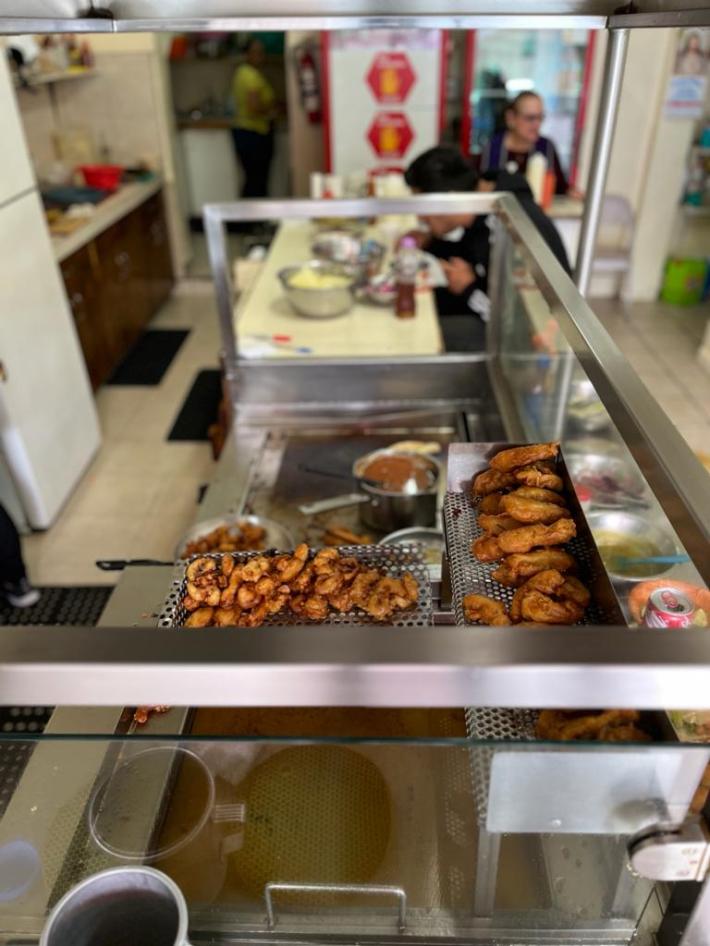
In 2020, Alicia’s closed for a month due to the Covid-19 pandemic. It was the longest it had closed since it opened nearly 30 years before. Duarte closed rather than offer carry-out food. “I want to see people, not go outside to carry food out to the car,” she said. Fortunately, the strength of their ties in the community kept them afloat while other taco businesses sank.
Duarte began cooking fish tacos at a roadside stand on 10th Street with her sister, who has now passed away, in 1984. For seven years, they worked together before she decided to go out on her own and open Alicia’s, while her sister owned the other famous Tijuana fish taco restaurant, Las 4 Hermanas. Duarte now runs the business with her son, Raul Olivares, 49, who plans on taking over the business when it comes time. With two teen sons, Olivares hopes they will also choose to work in the family business someday.
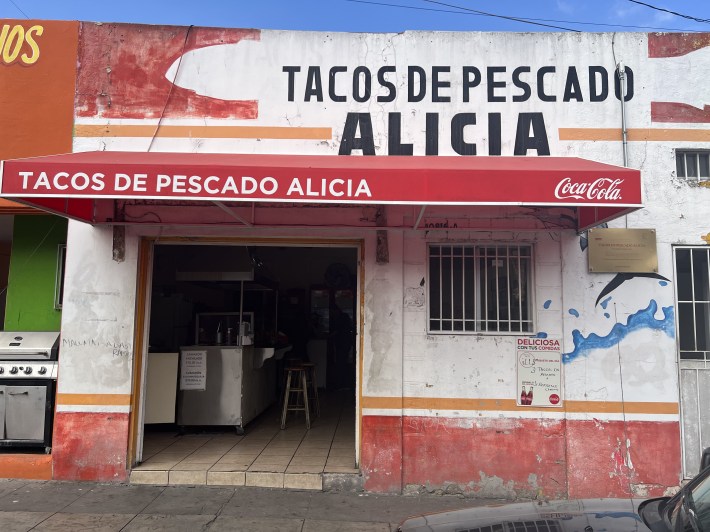
Since opening, Duarte has witnessed a lot of change occur in Tijuana. She has seen an influx of residents in the city, which she believes results from the available work. While she admits it is good for business, she reminisces about a more peaceful life in Tijuana, where she and her family lived quietly. She maintains her loyalty to the city, and all of Alicia’s fish is sourced from the nearby Pacific Ocean.
Duarte says that there is no “secret ingredient” or cooking tip she can use to explain the popularity of her tacos. “They’re just tacos,” she says.
Duarte says that there is no “secret ingredient” or cooking tip she can use to explain the popularity of her tacos. “They’re just tacos,” she says, but when I visited and spoke to customers, each one had been visiting Alicia’s for over ten years. They even made the commute from neighboring Otay to Tijuana to eat her tacos. However, they each mentioned the cleanliness and quality of service in their favoritism of Alicia’s over the many other mariscos restaurants.
As for the photos, Duarte couldn’t help but laugh when I explained my lifelong curiosity. Her husband loved motorcycles and was in the Angeles del Camino club. Having started and disbanded in his youth, the Angeles del Camino reconnected in old age, and he remained a member until he passed away in January of 2022. Adorning the walls is the history of that club and a more extensive history of its impact on Tijuana culture. Duarte guided me through the photos, some in black and white, showing the couple in their youth posed on a motorcycle. I told her that he looked like a bad boy, and she smiled widely while gushing about what a sweet man he was and the loss of him being gone.
Looking at her photos again for the first time since I was in high school, I was suddenly three feet tall. It felt like hours after getting stuffed into my car seat. I was finally taken out. The pee bucket had been put to good use as the line I sat in to cross the border from San Diego to Tijuana took longer every time I visited. It’s hot, I’m starving, and my teeth feel chapped because all that I’ve eaten for two hours are Flaming Hot Cheetos and Pulparindos.
The sun feels stronger here in Tijuana than in California. Still, through tiny, squinted eyes, I looked up and made out the face of Nemo, the fish, while the scent of fried fish for Ensenada tacos filled my even tinier nostrils. Within 10 minutes, I was once again holding a taco that I would compare others to for the rest of my life as I stared at a wall of photos that captured the life and times of a Tijuanan motorcycle gang.
Av. Aquiles Serdan 10816-A, Libertad, 22400 Tijuana, B.C., Mexico
This story is part of TIJUANA WEEK at L.A. TACO! A collaboration with Professors Amara Aguilar, Laura Castañeda, and USC Annenberg School for Communication and Journalism. Make sure to check back daily for more stories. A printable L.A. TACO Pocket Travel Guide to Tijuana will drop later this week so keep an eye out for that soon.
